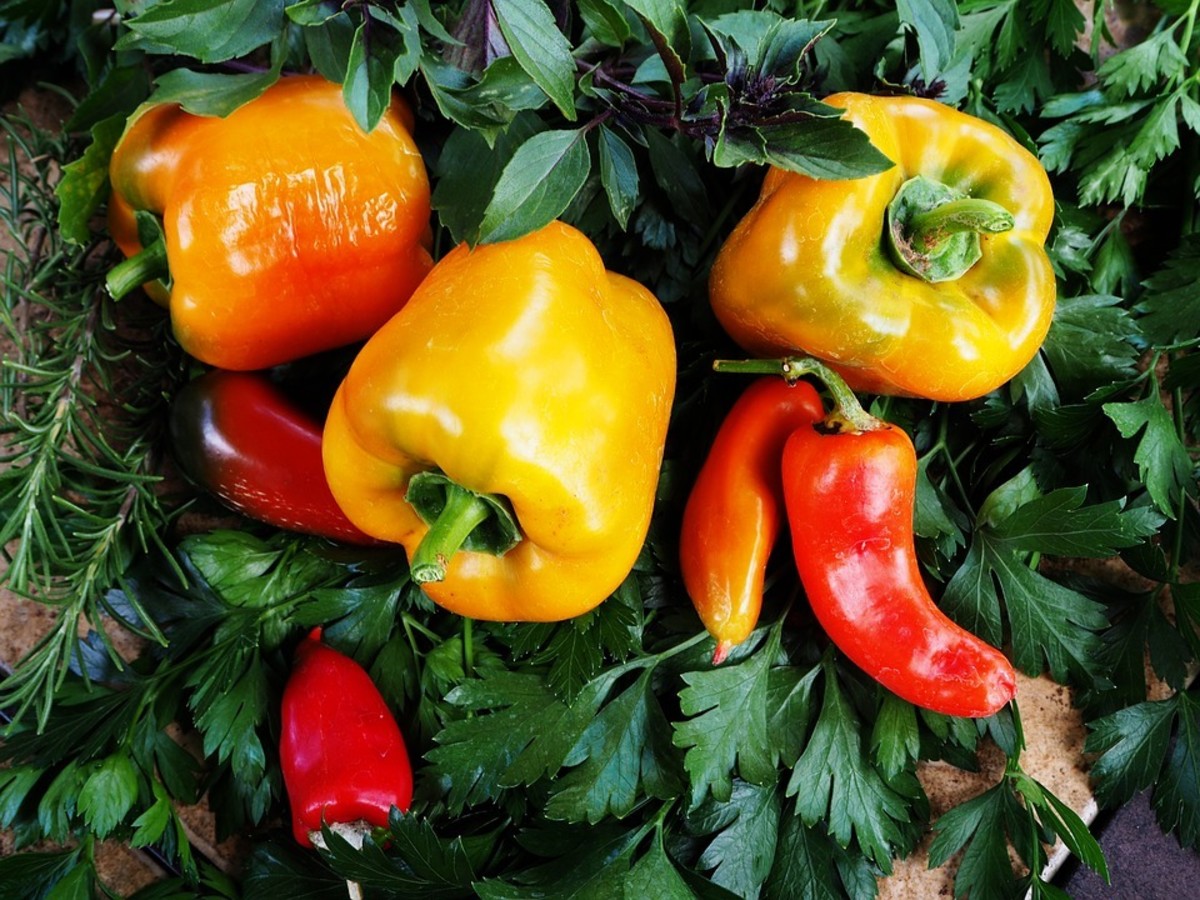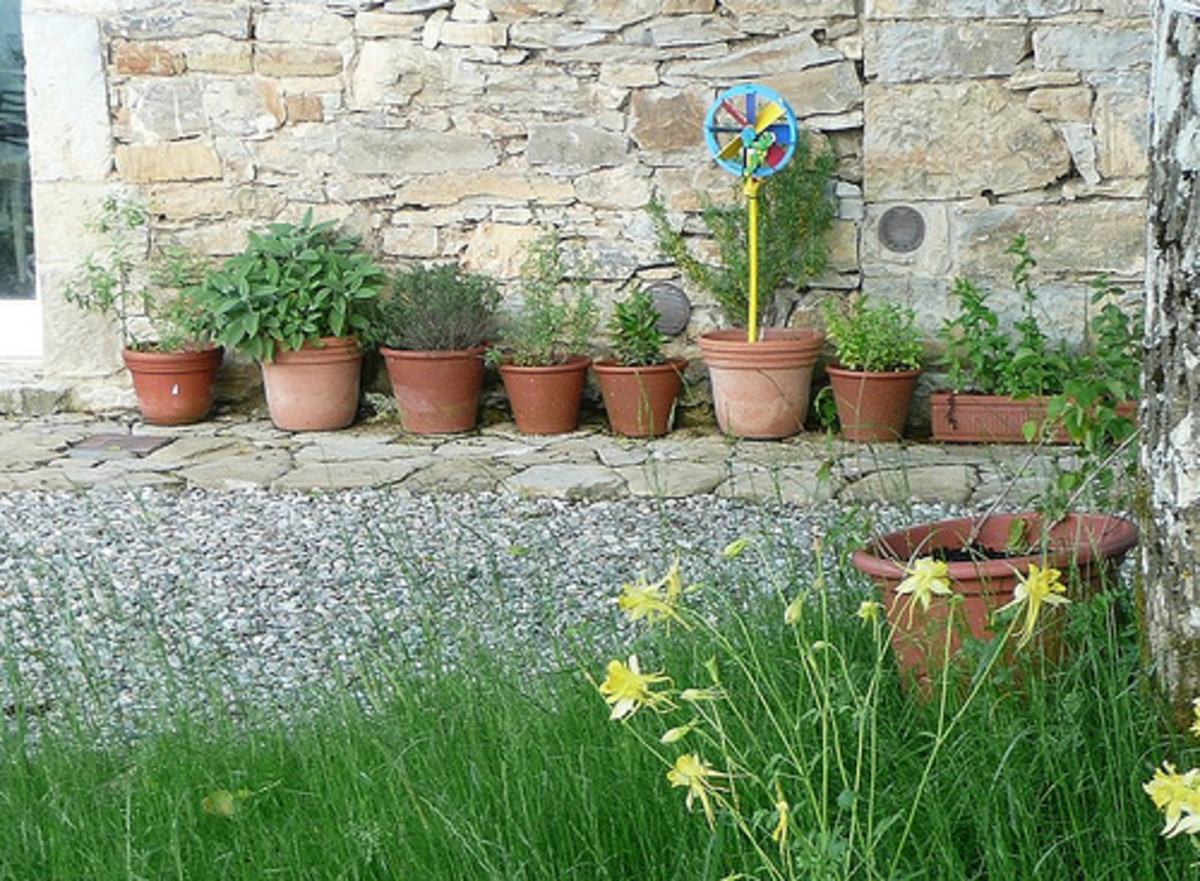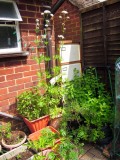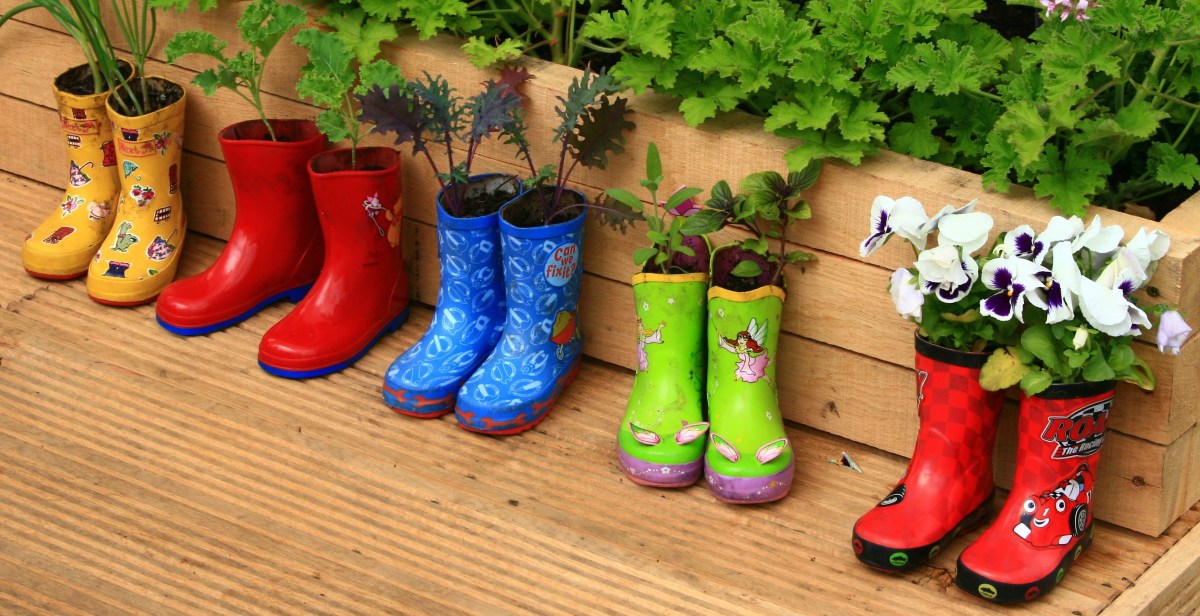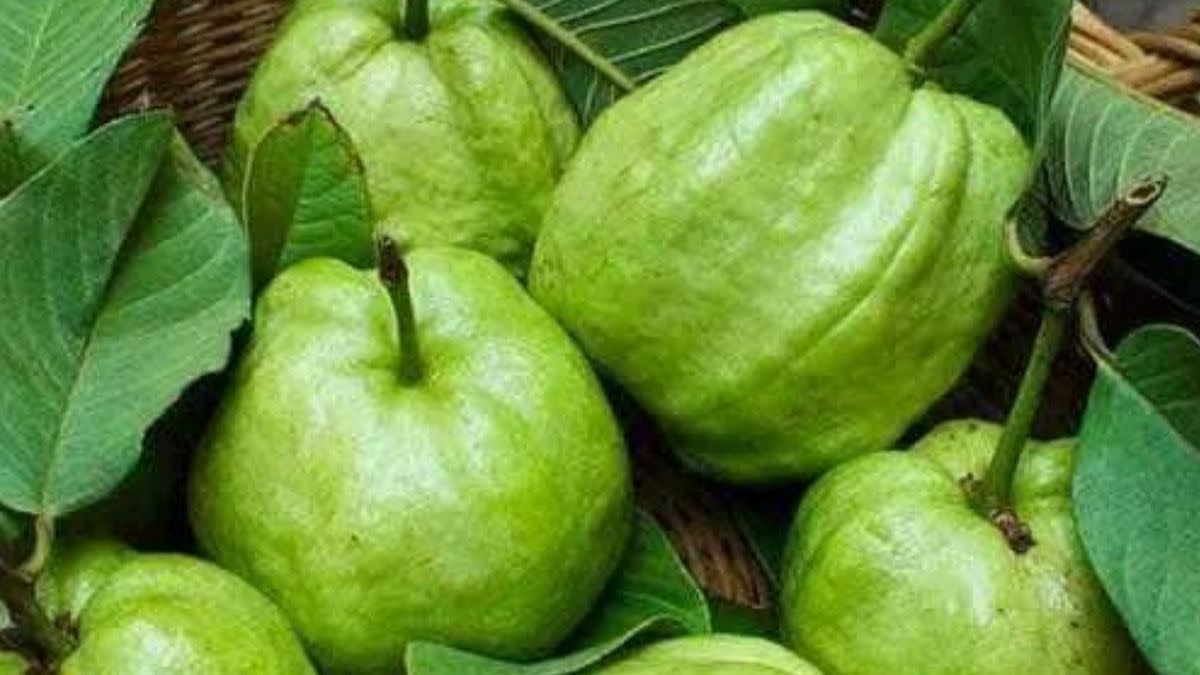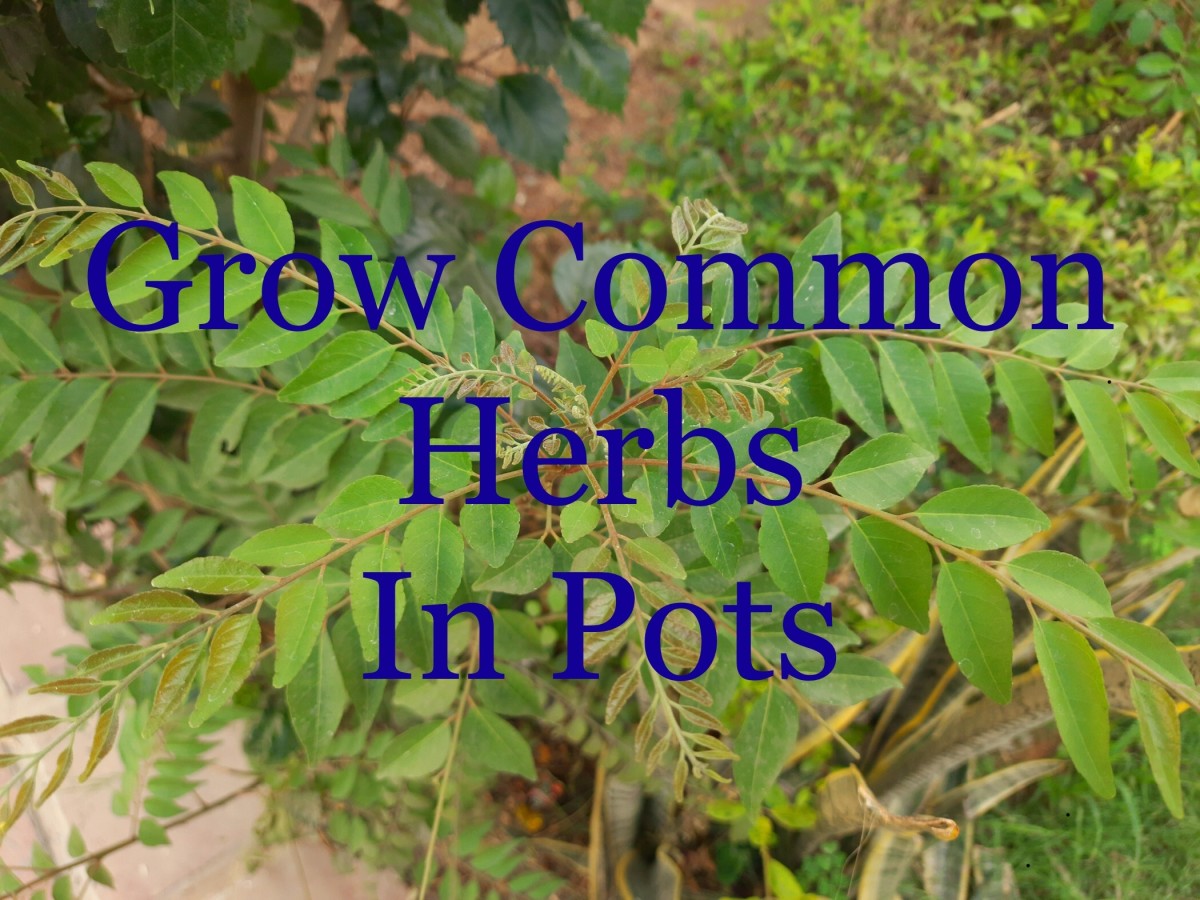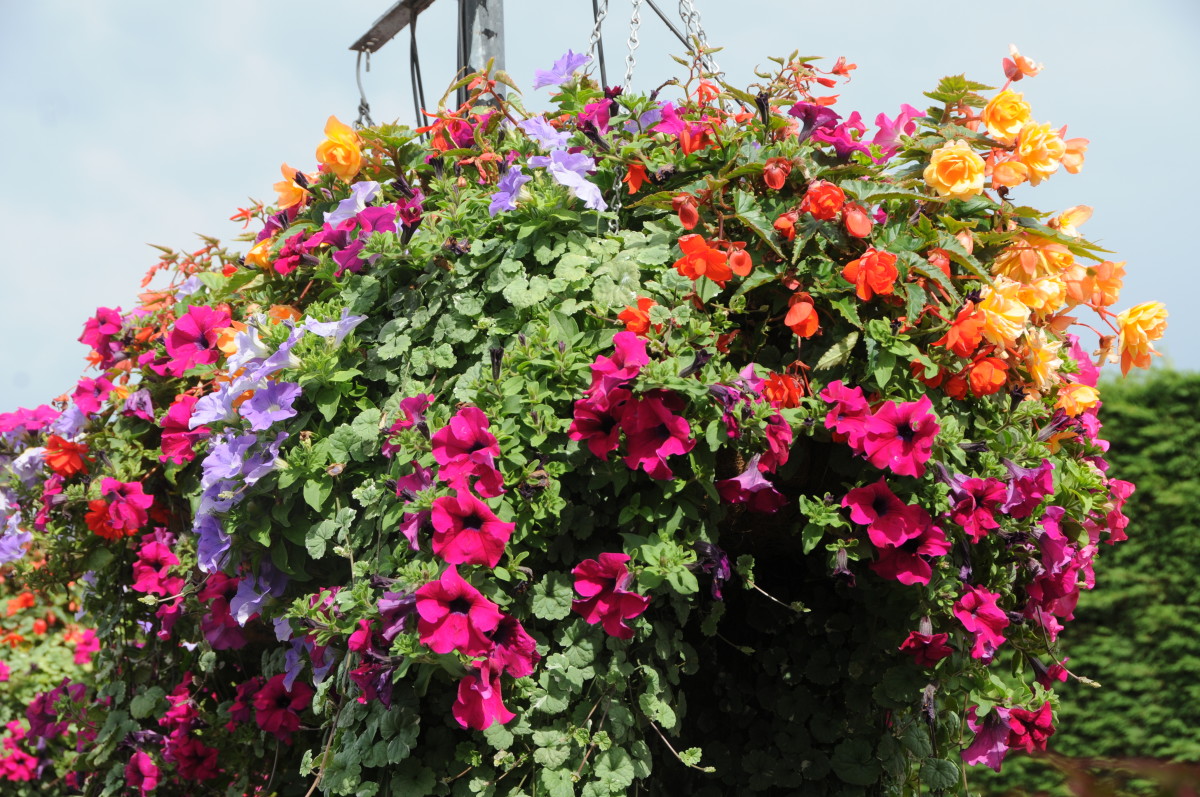How To Grow Food on Your Deck - For Beginners
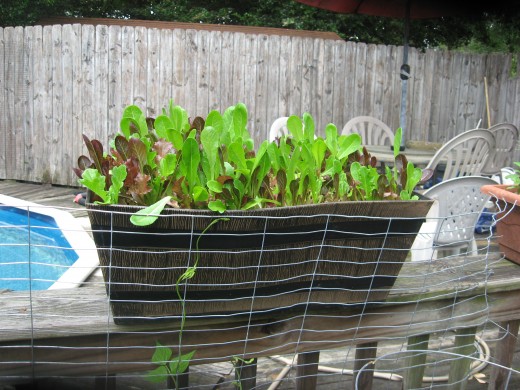
Urban Farming
I've always loved growing plants – especially vegetable plants. Even when I was a little kid, I grew a small vegetable garden next to my playhouse, even though we lived in town. As an adult, I lived on a very large farm and on a seven-acre hobby farm, and I grew big gardens on both. Now, my life has come full circle. I'm residing in the same house I grew up in, which, as I explained, is in town. We have a small yard, and the entire back yard has been turned into a deck and a fenced play area for our dogs. I've never lost that desire to grow our own food, however, so I created a container garden on the deck. My husband teases me, calling me a “farmer.” Urban farming and gardening has become extremely popular, but in my case, I suppose I'm more of a SUBurban farmer. Check out my container garden, along with some tips you might use with your own urban farm or suburban vegetable garden!
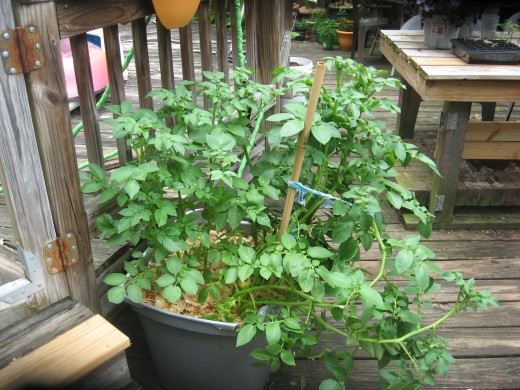
Getting Started
I know it's tempting, but don't just start planting things willy-nilly. A successful garden takes planning. The number one requirement you'll need is sunshine. No matter what type of plants, water, soil, or fertilizer you use, they'll all be pretty useless if you don't have the proper amount of sunlight. Check out your proposed growing areas several times during the day to see how sunny they are. Most vegetables need at least six to eight hours of full sun each day, so choose your growing spaces accordingly.
Next, decide what you want to grow. What vegetables do you and your family enjoy eating? Make a list, and then find your planting zone. You can do that on the internet. I suggest talking to experienced gardeners in your area and studying seed/plant catalogs to discover which specific varieties do best for your zone. You'll also want to take required growing space into account. For example, many types of veggies are available in dwarf or bush varieties that require considerably less space than their traditional counterparts.
Now that you've narrowed down your choices, you'll need to find out what size containers you'll need. As a general rule of thumb, choose containers that hold three to five gallons of soil for most vegetables. Smaller containers can be used for herbs. Five-gallon buckets and large plastic storage bins work well for container gardening. Just be sure to drill holes in the bottom for sufficient draining.
Some of your plants will need structural support, and climbing plants will need something to cling to. I use metal tomato cages, bamboo stakes, woven-wire fencing, and plastic fencing. Help your plants by securing them loosely with strips of old tee shirts or pantyhose to the support.
For soil, use a good quality potting soil. I usually add compost and peat moss to commercial potting soil, along with some slow-release fertilizer. It's also important to note that some plants might need additional minerals. For example, if I don't add garden lime (calcium) to my tomatoes, my plants often get blossom end rot. You can find tons of information about growing different vegetables on Youtube.
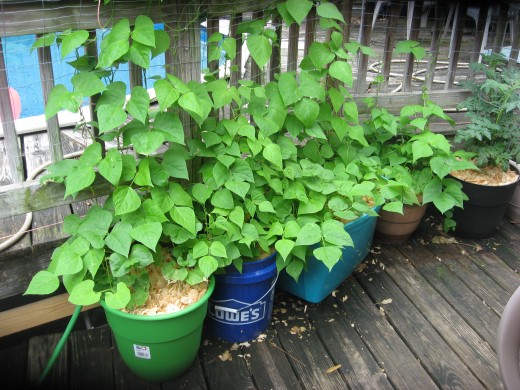
Plants Vs. Seeds
You're all ready to start your urban farm container gardening project, but do you grow from seeds, or do you purchase young plants? Some vegetables are super easy to grow from seeds, while others aren't. Here are the vegetables and herbs I grow from seeds: summer squash, zucchini, cucumbers, acorn squash, butternut squash, pumpkins, bush beans, pole beans, carrots, lettuces, ornamental gourds, scallions, chives, parsley, thyme, and tarragon.
I purchase plants in order to grow eggplant, strawberries, hot peppers, sweet peppers, sage, basil, and rosemary.
For tomatoes, I buy plants and start some seeds indoors. For potatoes, I use store-bought spuds that have been allowed to sprout.
When buying plants, select the healthiest ones. Don't choose those that have already begun to fruit. It's also important to check the plants for insects. I find plants at Lowe's, Walmart, Tractor Supply, and local nurseries.
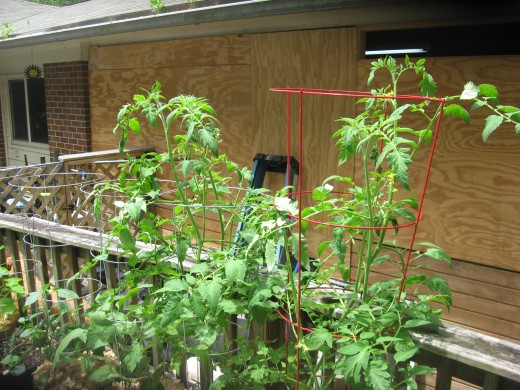
Container Garden Maintenance
You can't just plant a container garden and ignore it! I examine my plants at least twice a day, checking moisture levels and looking for any insects, insect damage, and fungal/bacterial infections. Such problems need to be nipped in the bud if you want to save an affected plant.
Chances that insects will attack your garden are practically 100%, so be ready. You'll have to decide if you'll use chemical pesticides, or if you'll use organic methods of pest control. I use organic neem oil and insecticidal soap, when possible. There have been times, however, when I've had to turn to chemical pesticides in order to save plants from particularly resilient insects.
Nutrition is especially important for container gardening. On average, I feed my plants about every two weeks during the growing season. Your choices include compost, compost tea, worm castings, worm castings tea, fish emulsion, liquid commercial fertilizer, and granulated commercial fertilizer. Don't overdo it. Too much fertilizer at one time can injure roots and foliage.
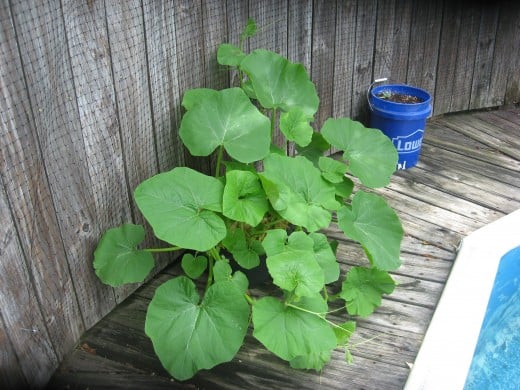
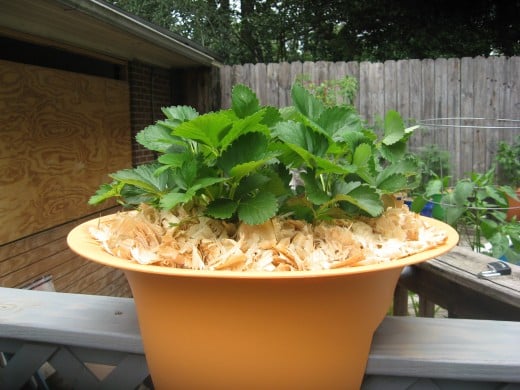
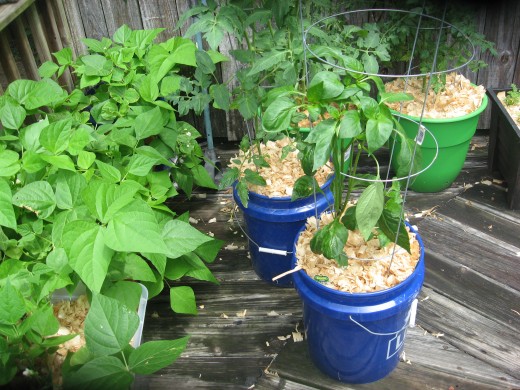
Experiment!
You first garden is likely to be a mixture of successes and failures. Every season, you'll learn something new. Be sure to label each container, so you'll know exactly which plant variety is growing in it. Make a note of which plants grow the best in your particular circumstances. That way, it will be easier to choose the plants you'll use in future seasons.
Container gardening is enjoyable and rewarding, but it does take a bit of effort. Even though I've had many gardens, a new problem occasionally pops up. As a result, I've spent hours researching, so it's important to do your homework. Youtube, other gardeners, your local extension service, books, and websites offer a vast array of information and tips. Make good use of these sources and be diligent in caring for your plants, and you'll have a beautiful deck garden.

